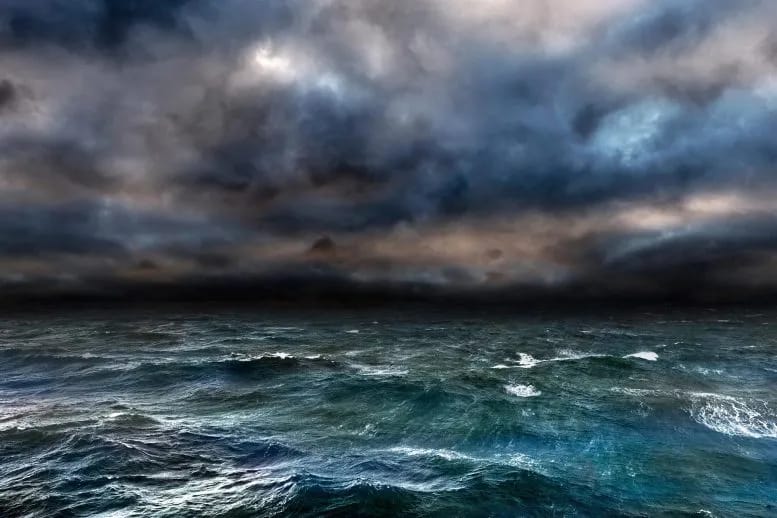The most recent studies by scientists show that the Northern Atlantic Ocean Is getting more unstable than predicted.

(Source: Phys.Org)
World News: Recent studies indicates that The North Atlantic Ocean is getting unstable, and it may be back to the ice age just like earlier, the Little Ice age. The Ocean has started to destabilize and potentially force it to “tip” into a new, and colder state.
Little Ice Age: The Return?

The Little Ice Age (LIA) was a period of sudden regional cooling in The North Atlantic Ocean that occurred in the Warm Medieval Period (950 AD to 1250). It was not the Global Ice Age. It was a term that a scientist named Francois E. Matthews introduced in 1939.
The Little Ice Age was a period of harsh winter that affected Europe and North America between the 14th – 19th Centuries. During the Little ice age, not only the Atlantic oceans but various rivers and lakes in Europe were frozen.
The Intergovernmental panel on climate change Third Assessment Report considered that the timing and areas affected were largely independent of regional climate changes and not global changes at most there was modest cooling of the Northern Hemisphere to 0.6 ℃ during the whole period.
The changes in Atlantic Meridional Overturning Circulation (AMOC) could be remarkably like the deep-water ocean current in the movie “The Day after Tomorrow” in geological terms.
The cooling in climate didn’t happen around the globe, but climatologists believe that combination reduced solar output, and helped rapidly increased the cooling of the atmosphere, they also believe that volcanism may have caused the little ice age.
Study Indications: Northern Atlantic Ocean and Its Changes

Scientists examined that, centuries-old clam shells are found, which determines how the Atlantic ocean’s climate system is slowly but surely getting unstable and it also indicated that eventually, it may be returning to its previous state.
A long-standing theory states that the long cooling period was maintained by “sea-ice to ocean feedbacks”. Ocean feedback determines whether the sea ice has expanded over the average length or whether the flow of warm water is decreased from the south.
The University of Exeter conducted several studies on the North Atlantic Ocean, which resulted in how the ocean has changed and responded to external changes now as compared to the last few centuries from Little Ice Age, using Quahog Clams, which are said and tested to survive for several hundred years.
Studies also showed that before the earlier little Ice Age, the North Atlantic Ocean lost resilience (the ability to recover from external changes) which led to a drastic decrease in the temperature leading to the ice age. Later, it is also revealed that a new tipping point in North Atlantic may be nearby.
The Major reason for Atlantic Ocean changes and upcoming tipping point, according to scientists is human-driven climate change, the Atlantic Ocean may just be the start of it and the changes might affect other oceans and climates all over the world.
A Postdoctoral Associate Wei Liu said, “The study shows, the possibility of collapsed AMOC under global Warming is hugely underestimated.” As the Department of Geology and Geophysics at Yale University led by Wei Liu started studying it was discovered that AMOC is responsible for Tipping points in the north Atlantic Ocean. The system is a major factor in regional climate change, affecting the Atlantic Ocean and countries in Europe.
Beatriz Arellano Nava, Of Exeter’s Global system institute, said, “A system loses the ability to return to its average state can also lead to a new state and may indicate the start of tipping of other oceans too.”
The new study by Professor Tim Lenton, said, “Our Latest analysis suggests that the system of ocean currents in the Atlantic Ocean is at a risk of tipping point again and once again may lead to abrupt climate change over Europe.”
Analysis of clam shells focuses on oxygen and carbon isotopes and shell growth – all of which can be used for measuring environmental variability.”
(With inputs from Multiple Media Outlets)
Read More at: – climate-change-melting-glaciers-biggest-fear













